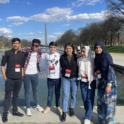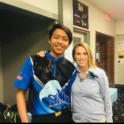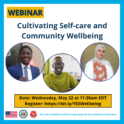Muskan, a student from Pakistan, discusses her experience attending Civic Education Week.
STORIES
Crip Camp Workshop Inspires YES Alumni in Cameroon
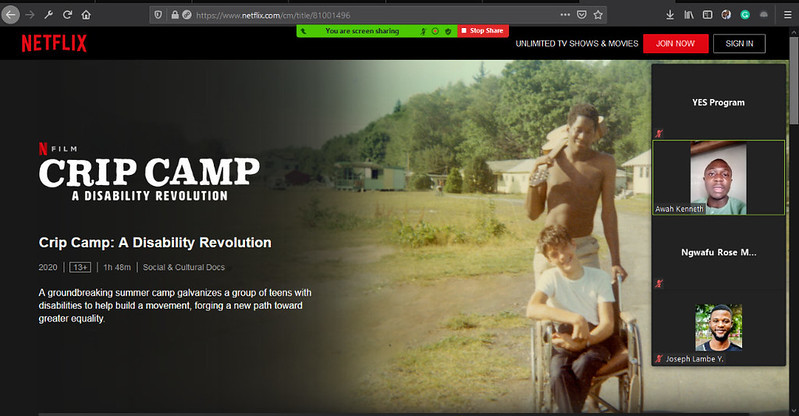
By Kenneth Awah Fru (YES 2015-2016, Cameroon, placed with AFS-USA in Mulino, OR)
The Crip Camp workshop that took place in August 2020 brought together exchange alumni from all over the globe to learn about the legacy of the disability rights movement in the U.S., discuss the current situation of people with disabilities in their respective countries, and learn how to contribute to the disability rights movement in their communities. Growing up as a non-disabled person, I had encounters with disabled people and even knew people with disabilities, but until the Crip Camp workshop, I had never been exposed to the realities they face.
The Crip Camp documentary contained real, raw, and authentic footage that depicted people with disabilities going through their day-to-day activities. This was new for me, and discussions with other alumni from across the world who have disabilities helped me learn about a variety of disabilities. I also learned the importance of inclusion and access for all. Inclusion gives everyone the possibility of contributing to the development of the community and makes everyone feel valuable.
Among the activities of the Crip Camp workshop, my favorite was the keynote speaker panel, which took place on the second day of the workshop. It was very informative to hear from people who played leading roles in the disability rights movement in the U.S. Hearing about the experience of people like Judy Heumann and Andraéa LaVant inspired me to learn more about the people with disabilities in my community and to help advocate for disability rights in my community and country.
Before the Crip Camp workshop, I didn’t take note of the challenge of accessibility to public places in Cameroon that people with disabilities are faced with. After the workshop, I began to notice that many public places are not equipped with ramps or elevators to facilitate access for people on wheelchairs or using crutches, making access to these places difficult for them.
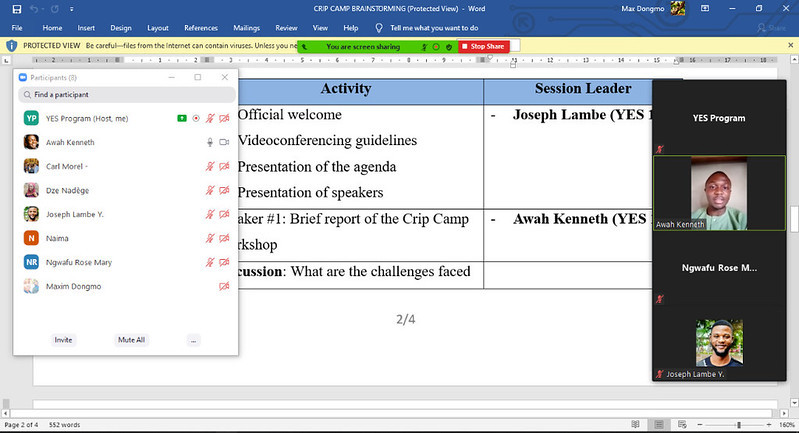
On August 30th, the YES alumni in Cameroon held a discussion session to recount the lessons learned from the Crip Camp workshop and come up with project ideas directed towards the disability community in Cameroon. In order to come up with projects appropriate to the Cameroon context, the alumni had to discuss how disabled people are perceived in the country, the roles they play, and challenges they face every day. The alumni observed that disabled people in Cameroon are perceived as being unable to do much and are often looked upon with pity. This underestimation by most non-disabled people can be a limiting factor to people with disabilities living to their full potential and contributing to community life.
After talking about challenges faced by people with disabilities in the country, the alumni suggested a number of projects that can be carried out to raise awareness about disabilities and supporting people with disabilities. The suggestions given include:
- Teaching teachers basic sign language so they can teach their subjects to students with hearing disabilities.
- Vocational training (for skills like tailoring, soap production, and knowledge of the usage of ICT tools) for unemployed disabled people to help them earn a living.
- Visiting communities of people with disabilities to find out what their challenges are.
- Raising awareness and highlighting disability rights activists on social media.
Work is currently underway on the vocational training project. On October 11, 2020, the alumni had a virtual training with an expert in soap production so they can in turn train people with disabilities later this month.
The Crip Camp workshop provided a platform where both disabled and non-disabled alumni could learn from and contribute to the discourse on disability rights. It left the participants more informed and motivated to advocate for disability rights. While the workshop lasted a week, I believe ripples of its impact will be felt much later on, through the active engagement of its participants in advocating for and working with communities of people with disabilities.


